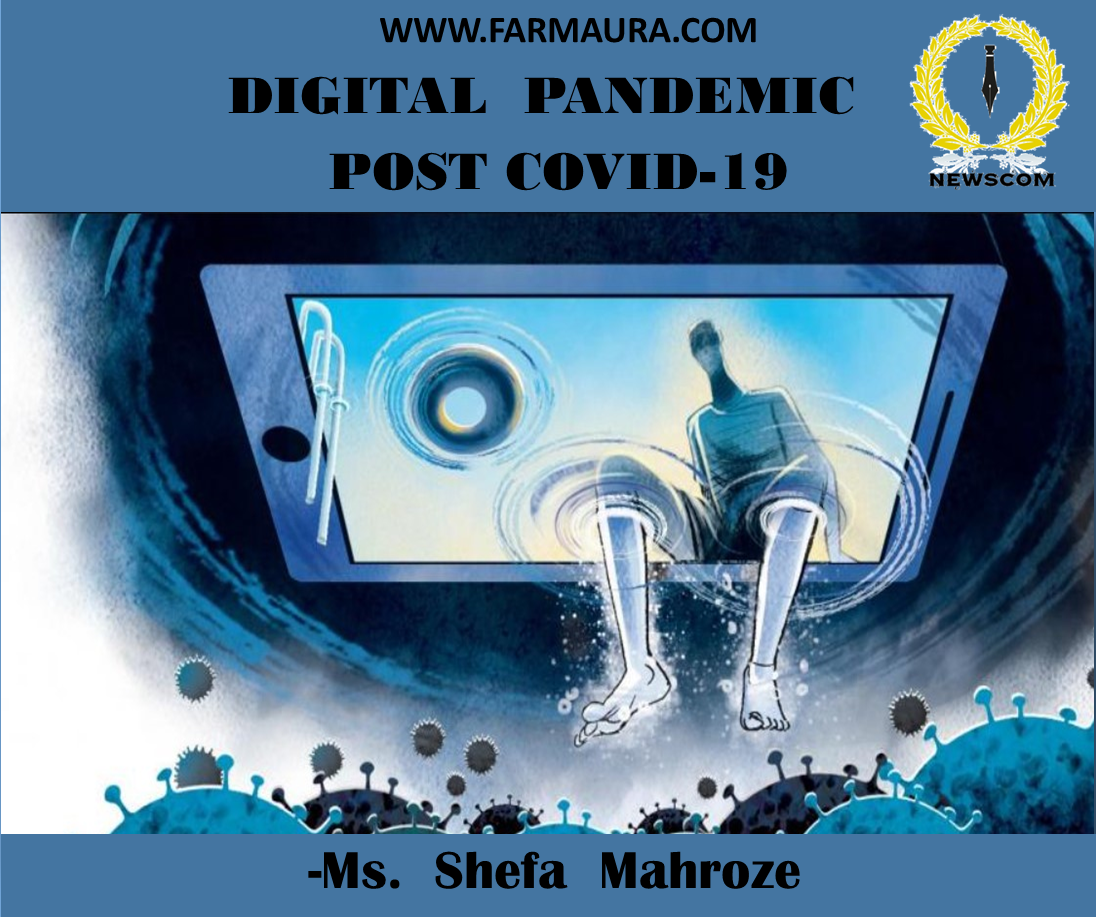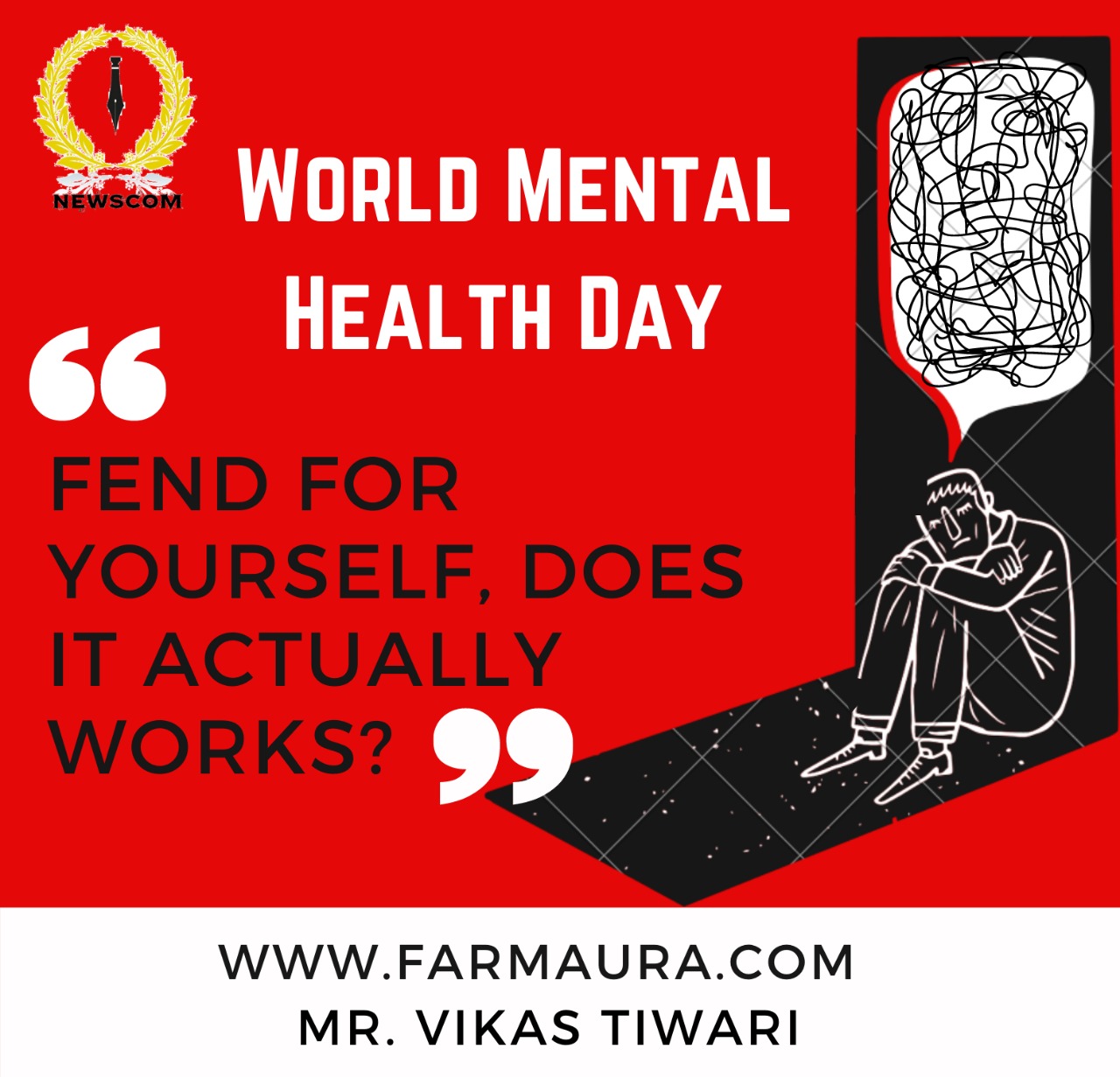A nationwide lockdown initially ordered for 21 days, restricted the movement of 1.3 billion population of India as a preventive measure against COVID-19 pandemic in India. As the end of the first lockdown period approached, Prime Minister Narendra Modi, on the recommendation of state government and other advisory committees, extended the nationwide lockdown till 3 May, which is now further extended by 2 weeks until May 17, with relaxations applied according to the zone’s division.
The GOI in addition to declaring a nation-wide emergency has stated some precautionary measures including stay at home, two meters (6 feet) distance, washing hands with soap for 20 seconds, and most importantly to only go outside for essential work. This has hampered the regular social interaction which is no longer a privilege to a once-convivial being.
This has altogether led to an alternate rhythm in human life. Anxiety and feeling of helplessness, some of the psychological scars of social distancing coupled with fake rumors are leading to an overwhelming experience of trauma and crippling intellectual loneliness.
‘A recent review of research published in The Lancet has linked post-traumatic stress disorder (PTSD) symptoms, confusion, and anger – the effects of which can be long-lasting with quarantine. The review further stated that though the negative psychological effect is an uprising, its effect on mental health can be detected months or years later’. The Lancet review also said that hospital staff showed symptoms of depression even three years after quarantine, with nine percent (48 of 549) of the whole sample reporting high depressive symptoms.
There is higher risk of pre-existing depression and anxiety becoming worse during isolation, whilst many new cases of depression and anxiety can also occur, expert commented.
Another behavior to be noticed is panic buying. With people hoarding resources leaving many essentials out of stock could further trigger anxiety and anxiousness in the general population.
These anxiety and fears are to be acknowledged and not ignored. There is a dire need for understanding and addressing individuals, communities, and government levels.
Simple strategies that can help address these problems can include an increase in communication. The need of the hour is to Practice social distancing but not emotional distancing. Making communication with family members about the disturbing thoughts would give clarity in thinking and help in making a better strategy.
Isolation will cause distress, on an individual level there is plenty that can be done. Scheduled sleep cycle, healthy eating practices, meditation, light exercises work as a great tonic to mental health.
On a positive note, there are many things that an individual can initiate. Indulging in old hobbies lost in the competitive, fast-paced professional life. Viewing this period as a new, if unusual experience and gaining access to quality information will supplement the healthy practices.
This is probably the best time to be quarantined, given the technological advancement we are equipped with. The involvement of children in conversation related to COVID-19 is important. Parents must not avoid the ‘scary’ topic but engage in a way that is appropriate for their children.
The silver lining could also be that, people will see that these health crises affect everyone, and religion and other divides don’t make sense. At the end of the day promoting collective harmony
Visit the Lancet psychiatry– Multidisciplinary research priorities for the COVID-19 pandemic: a call for action for mental health science- https://www.thelancet.com/journals/lanpsy/article/PIIS2215-0366(20)30168-1/fulltext
Tanoshree Rana





It’s great that you bring into notice as it is also a matter of concern for the people in lockdown. Mental health is a priority!
Nice
Like!! Great article post.Really thank you! Really Cool.
Hi There really are several sharks for individuals who have improved your shark that is current to the optimum stage, which you may find and perform with. many thanks
Sure will take into consideration and thank you